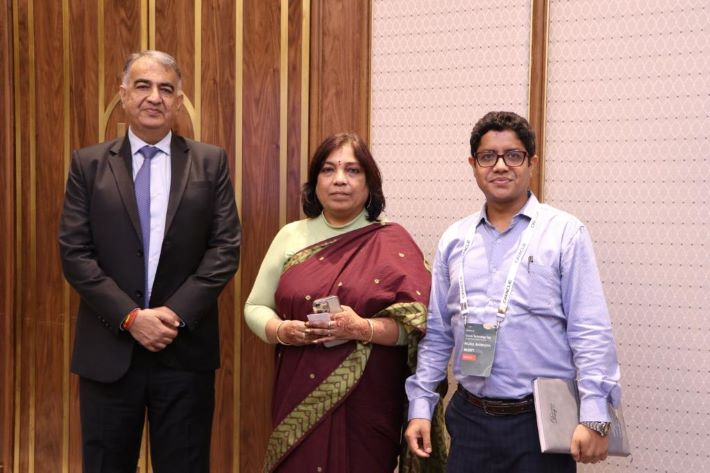India’s free education tech platform serving 200 million students moves to OCI to improve accessibility, scalability and security
Oracle today announced that India’s Ministry of Education has chosen Oracle Cloud Infrastructure (OCI) to modernize the country’s national education technology platform ‘Digital Infrastructure for Knowledge Sharing’ (DIKSHA). This migration will help make DIKSHA more accessible and lower its IT costs. The platform supports 1.48 million schools across all of India’s 35 states and union territories and is available in 36 Indian languages. Under the multi-year collaboration agreement, OCI will help the Ministry of Education use DIKSHA to provide educational resources to millions of additional students, teachers and collaborators across India.
As one of India’s largest andmost successful Digital Public Infrastructure (DPI) initiatives, DIKSHA was developed for school education and foundational learning programs. Using the open-source platform Sunbird, developed by the EkStep Foundation, DIKSHA helps teachers support inclusive learning for communities of underserved and disabled learners across the country. More than200 million students and 7 million teachers from government and private schools access content from more than 11,000contributors.Users of the platform stream 1.2petabytes of text and video content per day from sources such as the National Council of Educational Research & Training (NCERT), Central Board of Secondary Education (CBSE) and State Council of Educational Research and Training (SCERTs). Since moving to OCI, DIKSHA has gained greater scalability, security, cost effectiveness, and the ability to adjust capacity based on demand, enabling DIKSHA to deliver more content and serve more students and teachers as the platform grows.
“Education is an important pillar for economic development, and India’s knowledge economy continues to be one of the largest in the world. We need to embrace modern tools and technology to make education more easily available and securely accessible to everyone,” said Dr. Indu Kumar, Head of Department, ICT and Training, Central Institute of Educational Technology (CIET), National Council of Educational Research and Training (NCERT), Ministry of Education, Government of India.
“Migrating DIKSHA to OCI will play a key role in elevating India’s learning system. DIKSHA supports India’s DPI initiatives in the education field and is powering population-scale deployments, which can be challenging in a diverse country like India,” said Nandan Nilekeni, co-founder and chairperson, EkStep Foundation. “This collaboration is a significant milestone in our journey towards realizing Digital India in the age of AI and could be well emulated around the world.”
With the massive scale of the DIKSHA platform, India’s Ministry of Education needed a cloud service provider like OCI that is well equipped to handle the processing, storage and distribution of large amounts of data in a variety of formats. DIKSHA generates a huge number of logs for which they run Elasticsearch, Logstash, and Kibana (ELK stack) for application diagnosis, performance, analytics and dashboards. OCI Compute VMs and OCI Storagehelp manage DIKSHA’s workload and store application contentsuch as PDFs, videos and webpages as well as performance logs.To aid in the continuous development and management of the DIKSHA application, many of its microservices run on Kubernetes clusters in OCI Container Engine for Kubernetes (OKE) and container images are stored in OCI Container Registry. Additionally,OCI Media Flow and OCI Media Streams help make it easier for users to access the nearly 1.5 million videos on the platform by processing and storing video content in the right formats and resolutions to meet the users’ needs.
“As one of the largest free education platforms in the world, DIKSHA is an excellent example of the ‘made in India and made for India’ campaign,” said Shailender Kumar, senior vice president and regional managing director, Oracle India and NetSuite Asia Pacific and Japan. “Oracle is well-positioned to help institutions adapt to changing student demands in the new digital era and be more flexible in educating students of different needs. Our next generation cloud, perfectly aligns with DIKSHA’s goals because of its ability to provide scalability and elasticitywhile running applications faster, more securely, and more efficiently.”
The DIKSHA migration project is being implemented by two Oracle Partner Network members, Bharti Airtel and Trigyn Technologies. DIKSHA will be deployed in the Oracle Cloud Mumbai region.
